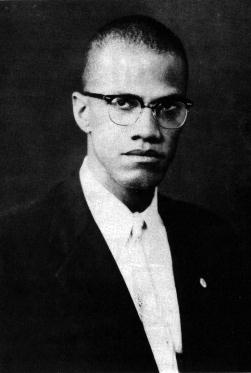Saturday, April 03, 2004
Common criminals
I just read this:
Citizens from 27 of America's closest allies, including New Zealand, Britain and Australia, will now be fingerprinted and photographed on arrival in the United States as part of a security crackdown.
The policy, to begin at airports and seaports by Septemver 30 and at the 50 busiest US land crossing by the end of the year, extends a programme that started January 5 under which everyone who comes to the United States on a visa -- except diplomats -- is fingerprinted and photographed on arrival.
-- Further information on the "success" of the earlier version of this problem is available from the NY Times:
The State Department, which joined the homeland security agency in announcing the expanded program, said it has been notifying diplomats in the 27 countries. (There is no change in the status of visitors from Canada and Mexico, who may enter the United States without passports.)
A State Department spokesman, Adam Ereli, rejected any suggestion that the 27 countries might view today's announcement as "a slap in the face," as one questioner put it at a news briefing.
"If that's the way it's seen, then it's certainly not intended in that light," Mr. Ereli said. "At the same time, there are security needs, I think everybody recognizes those security needs."
The photograph-and-fingerprint procedure "is a very, very low-hassle, unintrusive way of protecting the public and protecting the United States," Mr. Ereli said.
-- Right, and what security needs and public protection would this be?
Mr. Hutchinson said the procedures are quick and unobtrusive and have helped Homeland Security and State Department officials intercept more than 200 people suspected of criminal or immigration violations. The people have included convicted rapists, drug traffickers and individuals convicted of credit-card fraud, he said.
-- So travellers will be finger-printed like common criminals in order to catch ... common criminals. This isn't really about terrorism at all, is it? It's about expanding surveillance and state power. What ticks me off so much about this is that for so many people, they can't *help* but go through the US en route to other desitnations. e.g., New Zealand -- Canada connections almost invariably involve a stop in either Los Angeles or Hawaii, unless you want to take the interminable dogleg through Hong Kong. "What is the purpose of your visit to the United States?," their Customs officials always inquire. Just for once it would be great to hear someone say: "None. I have no desire whatsoever to visit your country. I am compelled to stop over at your airport for a few hours. I view this as an unnecessary and unwanted delay."
Citizens from 27 of America's closest allies, including New Zealand, Britain and Australia, will now be fingerprinted and photographed on arrival in the United States as part of a security crackdown.
The policy, to begin at airports and seaports by Septemver 30 and at the 50 busiest US land crossing by the end of the year, extends a programme that started January 5 under which everyone who comes to the United States on a visa -- except diplomats -- is fingerprinted and photographed on arrival.
-- Further information on the "success" of the earlier version of this problem is available from the NY Times:
The State Department, which joined the homeland security agency in announcing the expanded program, said it has been notifying diplomats in the 27 countries. (There is no change in the status of visitors from Canada and Mexico, who may enter the United States without passports.)
A State Department spokesman, Adam Ereli, rejected any suggestion that the 27 countries might view today's announcement as "a slap in the face," as one questioner put it at a news briefing.
"If that's the way it's seen, then it's certainly not intended in that light," Mr. Ereli said. "At the same time, there are security needs, I think everybody recognizes those security needs."
The photograph-and-fingerprint procedure "is a very, very low-hassle, unintrusive way of protecting the public and protecting the United States," Mr. Ereli said.
-- Right, and what security needs and public protection would this be?
Mr. Hutchinson said the procedures are quick and unobtrusive and have helped Homeland Security and State Department officials intercept more than 200 people suspected of criminal or immigration violations. The people have included convicted rapists, drug traffickers and individuals convicted of credit-card fraud, he said.
-- So travellers will be finger-printed like common criminals in order to catch ... common criminals. This isn't really about terrorism at all, is it? It's about expanding surveillance and state power. What ticks me off so much about this is that for so many people, they can't *help* but go through the US en route to other desitnations. e.g., New Zealand -- Canada connections almost invariably involve a stop in either Los Angeles or Hawaii, unless you want to take the interminable dogleg through Hong Kong. "What is the purpose of your visit to the United States?," their Customs officials always inquire. Just for once it would be great to hear someone say: "None. I have no desire whatsoever to visit your country. I am compelled to stop over at your airport for a few hours. I view this as an unnecessary and unwanted delay."
Comments:


















Post a Comment